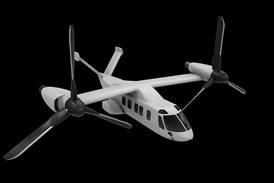Sir - I agree wholeheartedly with Capt. Sorensen's comments (Flight International, Letters, 26 April-2 May, P42). Having flown both conventional aircraft and the Airbus Industrie A320, I would like to add my opinion of the operation of the A320.
It is no secret that, with the exception of the Lufthansa A320 accident in Warsaw, Poland, where aircraft-systems logic could be blamed because of unusual circumstances, many of the A320 accidents have been caused by incorrect flight-mode selection. I do not believe that this can be blamed on the design of the aircraft's systems, but rather on the lack of effective aircrew line-oriented flight training (LOFT), as Capt. Sorensen points out.
Whether pilots like it or not, the physical act of manually flying modern aircraft is taking less of their time than it did with conventional aircraft. Today, the correct and efficient management of an auto-flight system (AFS) is a more important function on the modern flight deck than is manual flying. This then raises the issue of efficient cockpit-resource management (CRM).
Although accurate manual flying is still a very important part of a pilot's skills and must be practised regularly, a good crew practising good CRM will know how and when to use the AFS and when to disconnect. Why stack the odds against oneself by flying manually in difficult circumstances? Leave the AFS to do the flying and free the "mind of the cockpit" effectively to manage the flight.
Effective management of the AFS and correct decision-making can only be made by the human mind, which can also make mistakes. Such errors can be minimised by effective LOFT and CRM, which should pertain specifically to the type of aircraft being operated, either conventional or automated glass-cockpit types such as the A320.
JEFFERY POOLER
Senderwood, South Africa
Source: Flight International























